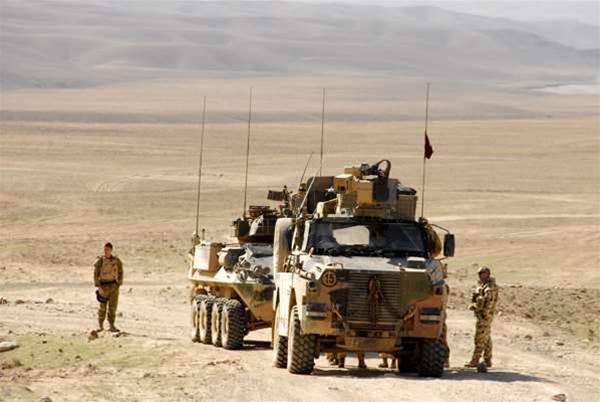The Department of Defence is facing delays to the start of implementation works under its mammoth $1.1 billion terrestrial communications contract with Telstra.

The Department expects to incur a minimum four-month delay to the first go-live of communications services, amid warnings that red tape could stretch delays into 2015.
Chief information officer Dr Peter Lawrence last night told a Budget Estimates hearing the election had pushed back timeframes to achieve initial operating capability (IOC) for the project.
IOC is a milestone where "one or more subsets of the capability can be deployed on operations".
"The election's probably put us back four or five months, so we will be four or five months later on the initial operating capability than we had planned," Dr Lawrence said.
"The initial operating capability ... is now targeted for November next year".
Defence had originally estimated IOC as falling sometime in 2013, before quietly revising it to "mid-2014".
"Further slippage arising from negotiations with Telstra, have led to the current view that IOC will now take place in November 2014," a Defence spokesperson told iTnews.
"In stating there had been a slippage of four or five months [Dr Lawrence] was referring back to the mid 2014 IOC estimate (that had not been formally publicised) and not the original estimate of December 2013."
Delays to 2015?
Shadow Minister for Defence, Senator David Johnston, raised the prospect of further delays flowing into 2015. Remediation works at Defence sites to prepare them for Telstra services must be signed off by the Public Works Committee.
Defence is still preparing the paperwork for the committee via a program of nationwide audits performed by Defence and Telstra.
The audits are designed to clarify the level of remediation works required to cabling and facilities to "get them up to the standard" where they can be used by Telstra to provide terrestrial communications services under the contract.
Dr Lawrence indicated Defence would try to outsource remediation works identified in the audits.
"We have to review a lot of the sights and bases around the country," Dr Lawrence said.
"A lot of those bases require significant work due to the fact that they are relatively old. We have poor cabling and we have poor facilities on them."
"It is taking us a reasonable amount of time to do the audits. We have to go to visit the sites.
"We and Telstra visit them, audit the sites, work out what work has to be done and compile the
documentation".
Dr Lawrence said he hoped the paperwork would be ready for the committee "in about November this year".
He said Defence would be looking for committee approval "probably early next year", but Senator Johnston described that as "very optimistic".
Treading water?
Senator Johnston warned Defence that even submitting the documentation in November would not guarantee that remediation works could begin, and that an initial operating capability could be delivered in 2014.
The Senator earlier noted that "nothing can happen until the Public Works Committee ... signs off on the hole and the trenches and all of the public works to be conducted to facilitate the communications".
"I would not expect, conservatively, to see the light of day on this project from that committee until 2015. That is news to you?" Senator Johnston put to Dr Lawrence and other Defence personnel in attendance.
"The real issue will be how long the PWC [Public Works Committee] takes to reconstitute itself following the election in September," Defence Support and Reform deputy secretary, Steve Grzeskowiak, said.
Defence took on notice a question of any costs it might incur should Telstra be left with a "sizeable technically skilled workforce treading water while we wait for this [committee] tick-off".
Telstra began scaling up its personnel in April in readiness for the demands of the massive communications contract.
The six-year deal with Telstra is expected to transform Defence's terrestrial communications capabilities.
It was signed in April (pdf), after Telstra was named preferred tenderer back in November 2012.
The targeted completion date is mid-2016, assuming Defence can negotiate red tape delays described at Estimates.
The Defence telecommunications network includes 430 sites across Australia and counts 100,000 users nationwide and overseas.


.png&h=140&w=231&c=1&s=0)
_(23).jpg&h=140&w=231&c=1&s=0)
_(28).jpg&h=140&w=231&c=1&s=0)






 iTnews Benchmark Awards 2026
iTnews Benchmark Awards 2026
 iTnews Executive Retreat - Security Leaders Edition
iTnews Executive Retreat - Security Leaders Edition
 iTnews Cloud Covered Breakfast Summit
iTnews Cloud Covered Breakfast Summit
 The 2026 iAwards
The 2026 iAwards











_(1).jpg&h=140&w=231&c=1&s=0)



